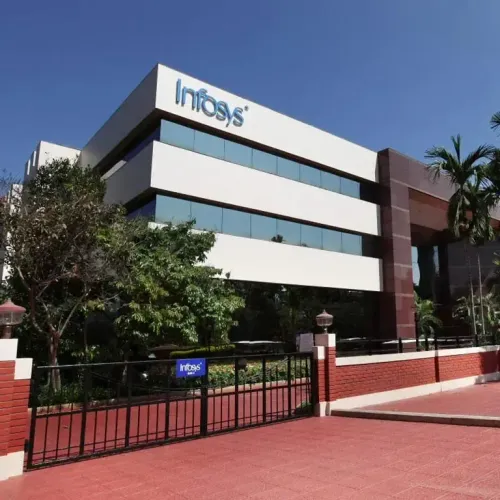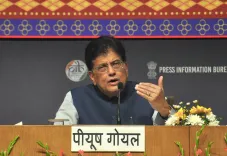How is IT Hiring in India Stabilizing with Increased Campus Recruitment in H1 FY26?

Synopsis
Key Takeaways
- 25% increase in campus recruitment compared to H1 FY25.
- 27% rise in demand for technical and AI roles.
- Shift from 'hire-and-train' to 'train-then-hire' model.
- Focus on skill depth over sheer numbers.
- Active collaboration between IT companies and educational institutions for up-skilling.
New Delhi, Oct 22 (NationPress) The landscape of IT hiring in India during the first half of fiscal year 2026 (H1 FY26) showcases a remarkable recalibration, with technology companies increasing their campus recruitment by 25% compared to H1 FY25. Major IT players are renewing their partnerships with prominent engineering and technical institutes, according to a report released on Wednesday.
There has been a 27% increase in demand for engineering, technical, and AI profiles during this timeframe, with compensation levels rising by 5% compared to the previous year.
According to the Adecco Group, a firm specializing in talent and technology, most campus recruits are being allocated to metropolitan areas including Bengaluru, Hyderabad, Pune, and the National Capital Region, alongside a 7% rise in placements within Tier-2 cities such as Coimbatore, Udaipur, Nagpur, Visakhapatnam, and Indore.
Organizations are focusing on sustainable and efficient hiring practices to ensure that new hires are utilized effectively without being sidelined.
The report indicates a shift from the conventional “hire-and-train” methodology to a “train-then-hire” strategy, where companies engage with campuses sooner to align academic preparedness with real project needs, thereby reducing ramp-up times.
“The sentiment around IT hiring is currently in a state of recalibration, remaining cautious yet driven by objectives. Companies are emphasizing skill depth instead of sheer numbers, particularly in areas like cloud, data, and AI, while synchronizing workforce capabilities with live project requirements. Although campus hiring is on the rise, the pressing challenge lies in ensuring that engineering talent is ready for the market,” stated Sanketh Chengappa, Director and Business Head of Professional Staffing at Adecco India.
To tackle this issue, Chengappa mentioned, “We are actively collaborating with IT firms, educational institutions, and governmental bodies to provide customized up-skilling and re-skilling initiatives.”
This signifies a distinct move towards quality-driven and demand-aligned workforce planning as the sector continues to face a 45-50% demand-supply gap in AI roles, cloud computing, cybersecurity, cross-domain engineers, MLOps engineers, and data engineering.
In parallel, lateral hiring is being shaped by deal flows and delivery requirements.
There is a heightened emphasis on delivery leadership, domain specialists (cloud/data/AI), and cross-functional roles (DevOps, SRE, analytics leads) as opposed to generalists. The focus is also transitioning from large teams to smaller, high-impact, outcome-driven leaders, as indicated in the report.









